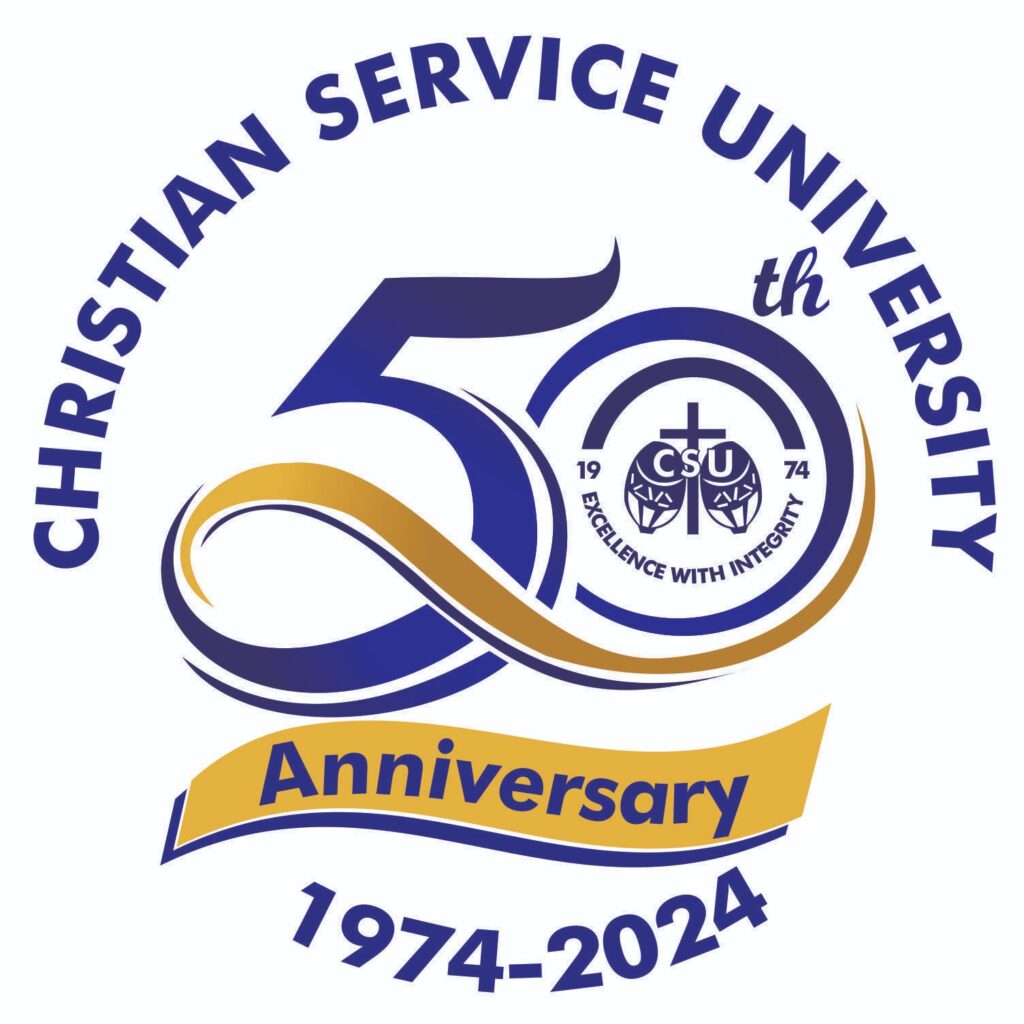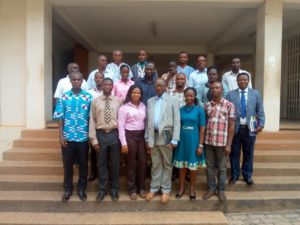The Acting Director for the Centre for Research and Business Development (CRBD) of the Christian Service University College, CSUC, Mr. Thomas Asafua Nketsia Wobill, recalled that Monitoring & Evaluation (M&E), goes beyond field inspection. He said ‘M&E is a continuum of activities, from planning to impact; where implementation of activities takes place to achieve products,and to use those products to achieve the intended results.’
Mr. Wobill emphasized on ‘learning’ as a key component of M&E and said at each stage of the M&E processes, there is the need to ‘study and balance learning with accountability’ to improve on existing implementation strategies, or to plan for new initiatives.
He also advised that in order for institutions/organisations to assess results or value for money on tasks, they should establish causal and logical flows to align activities with goals set.
He made these assertions during a briefing session organized for chief executive officers, management and technical staff of organizations, including heads of departments of CSUC on the need to strengthen their M&E systems; and created awareness on M&E short courses.
The session was also used to communicate the wide range of consultancy services that the Centre for Research and Business Development offers to individuals and organizations, and to introduce the flexibilities of CSUC in deploying M&E experts to the premises of organizations to offer training, mentoring, and coaching services.
Another highlight of the briefing session was on the new initiatives of the Centre which included the set-up of an online option of the Master of Science in M&E, and Master of Science in Corporate Planning programmes.
According to the Assistant Director of the Centre, Mr. David Kwao-Sarbah, the University College has introduced ‘the CSUC interdepartmental short courses that includes M&E for management level personnel; Proposal Writing and Fundraising for NGOs & CSOs; News Analyses & Interpretation and Media Law & Ethics for media practitioners; and more.
He pointed out that these are tailor-made certificate courses for specific career practitioners in society, with most of the courses lasting for two – five days.
Meanwhile, he indicated that the Media Law & Ethics course which is designed for media practitioners would start on 25 – 27 February 2019 to be followed by the News Analyses & Interpretation course in recognition for the crucial role of the media in national discourse, and the growing need to equip practitioners with cutting-edge skills.
Mr. Kwao-Sarbah noted that the Centre serves as a catalyst for the short programmes and is geared towards sensitizing various segments of the public to take advantage of the opportunity to enhance their skills. In addition, the Centre is offering the option of running some of the sessions at the premises of organisations that are interested in participating, and can provide suitable facilities to run the courses.
He finally assured participants that all their views expressed during the open forum of the session would be factored into the design of the Centre’s activities to suit specific needs of organizations.



